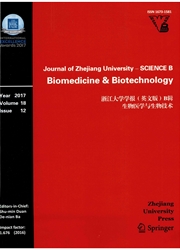

 中文摘要:
中文摘要:
有像骨破折的巨大的房间(OGC ) 的胃的癌是一个极其稀罕的肿瘤。到目前为止,仅仅六个案例在文学被报导了。这里,我们在腹的疼痛地介绍的一个中国 78 岁的人报导这个肿瘤的一个另外的案例,呕吐,并且吐血。物理检查和 gastros 拷贝在胃的窦揭示了一个肿瘤。活体检视和病理学的调查结果与 OGC 显示了胃的腺癌,它在肿瘤和变形淋巴节点是在场的。进一步的免疫组织化学的染色显示 OGC 与 CD68, CD45,和 vimentin 蛋白质,然而并非与 pancytokeratin, carcinoembryonic 抗原,或上皮的膜抗原是反应的,建议这些的 monocytic/histiocytic 推导 OGC。在为 Epstein-Barr 的 situ 杂交,病毒没在腺癌或 OGC 显示出原子确实。手术后的后续证明病人为至少 6 月 without 复发幸存。进一步的调查被保证清楚地在胃的癌定义 OGC 的预示的意义。
 英文摘要:
英文摘要:
Gastric carcinoma with osteoclast-like giant cells (OGCs) is an extremely rare tumor. So far, only six cases have been reported in the literature. Here we report an additional case of this tumor in a Chinese 78-year-old man presented with abdominal pain, vomiting, and hematemesis. Physical examination and gastroscopy revealed a tumor in the gastric antrum. The biopsy and pathological findings indicated a gastric adenocarcinoma with OGCs, which were present in both the tumor and the metastatic lymph nodes. Further immunohistochemical staining indicated that OGCs were reactive with CD68, CD45, and vimentin protein, but not with pancytokeratin, carcinoembryonic antigen, or epithelial membrane antigen, suggesting the monocytic/histiocytic derivation of these OGCs. In situ hybridization for Epstein-Burr virus showed no nuclear positivity in either adenocarcinoma or OGCs. Postoperative follow-up showed that the patient had survived for at least 6 months without recurrence. Further investigation is warranted to clearly define the prognostic significance of OGCs in gastric carcinoma.
 同期刊论文项目
同期刊论文项目
 同项目期刊论文
同项目期刊论文
 Expression of resistin-like molecule beta in Barrett’ s esophagus: a novel biomarker for metaplastic
Expression of resistin-like molecule beta in Barrett’ s esophagus: a novel biomarker for metaplastic Hypoxia-induced mitogenic factor is downregulated in nitrofen-induced hypoplastic lungs of congenita
Hypoxia-induced mitogenic factor is downregulated in nitrofen-induced hypoplastic lungs of congenita Upregulation of hypoxia-induced mitogenic factor in hyperoxia-induced bronchopulmonary dysplasia mod
Upregulation of hypoxia-induced mitogenic factor in hyperoxia-induced bronchopulmonary dysplasia mod Enhanced expression of resistin-like molecule beta in human colon cancer and its clinical significan
Enhanced expression of resistin-like molecule beta in human colon cancer and its clinical significan Nitrofen suppresses cell proliferation and promotes mitochondria-mediated apoptosis in type II pneum
Nitrofen suppresses cell proliferation and promotes mitochondria-mediated apoptosis in type II pneum 期刊信息
期刊信息
